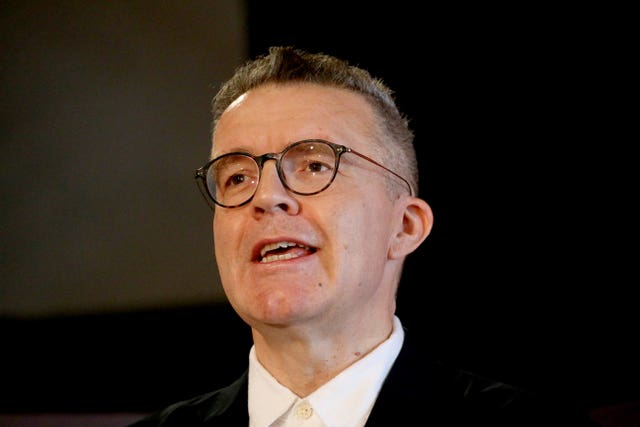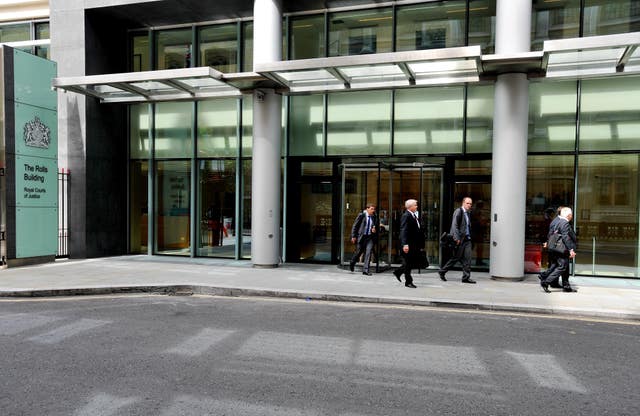The publisher of The Sun has agreed to search for documents that may relate to allegations it invented a “fake security threat” to justify the wiping of “millions of incriminating emails”, the High Court has been told.
According to court documents, News Group Newspapers (NGN) faces accusations it created a “false narrative” that a Labour peer conspired with ex-prime minster Gordon Brown to obtain stolen data as part of a bid to conceal wrong-doing and “subvert” police investigations into the phone-hacking scandal.
The claim about the mass deletion of emails features in legal action brought against NGN by the Duke of Sussex and others over allegations they were targeted by unlawful information gathering.
NGN denies that the 2011 security threat over the suspected theft of then chief executive Rebekah Brooks’s emails was devised as part of a “cover-up”.
The company, which also published the now-defunct News Of The World, has previously denied unlawful activity took place at The Sun.

It came amid a preliminary hearing in London over claims brought by former Labour deputy leader Lord Tom Watson and ex-Liberal Democrat Business Secretary Sir Vince Cable.
Both former ministers, who attended the hearing, allege NGN targeted them through voicemail interception and the use of private investigators.
In Ex-MP Sir Vince’s claim, the publisher is accused of unlawfully obtaining covert recordings of his constituency surgery in 2010 where he said he had “declared war on Murdoch”.
Sir Vince alleges that the recordings, obtained by a Daily Telegraph “sting”, were leaked to the BBC by Mr Lewis, documents said.
The BBC’s report of the comments led to ex-prime minister David Cameron stripping Sir Vince of responsibility for adjudicating on NGN parent company News Corp’s bid for full ownership of broadcaster BSkyB.
NGN opposed some of the disclosure search bids as “disproportionate” and an “expensive and time-consuming” process, while agreeing to some searches.
David Sherborne, for Lord Watson and Sir Vince, said in written arguments that the former was a target for unlawful activities due to his role on the parliamentary Culture, Media and Sport Select Committee which was investigating “media malpractice”.
The barrister said Lord Watson was “falsely cited by senior NGN executives, such as Rebekah Brooks and Will Lewis as part of the ‘fake security threat’ used to ‘justify’ the wiping of the crucial back-up tapes of NGN’s email system, that led to the deletion of millions of incriminating emails”.
He said NGN should look for material in relation to a claim that “there had been a suspected theft of Rebekah Brooks’ emails, these were offered or provided to the claimant, he had been handling stolen data, and was working in a conspiracy with Gordon Brown to obtain such data”.
“This was then used as a facade to engage in the destruction of emails on an enormous scale,” Mr Sherborne said.

“News Corp was desperate to avoid intervention by the Government or the official regulator,” Mr Sherborne said.
According to Sir Vince’s written case pleadings, NGN unlawfully obtained recordings of his “private conversations” through “improper payments or inducements” to a Daily Telegraph IT department employee “and/or by other unlawful means” by Mr Lewis.
When giving evidence to the Leveson Inquiry in 2012, Mr Lewis declined to answer whether he leaked Sir Vince’s comments to the former BBC journalist Robert Peston, citing the need to protect sources.
Anthony Hudson KC, for NGN, said there had already been “vast” disclosure in the legal action.
The barrister said some wider searches for material were “disproportionate” when Sir Vince and Lord Watson’s claims were valued at less than £100,000, with both men incurring legal costs higher than this in their disclosure bids.
In written arguments, Mr Hudson said the “threat” to Ms Brooks’s data was “believed to be genuine”.
He added: “NGN received information on two occasions that there was a direct threat that a current or former employee was actively trying to sell data belonging to NGN.
“It was against this background that NGN decided that multiple copies of confidential data should not be held in various systems, which would increase the risk of loss of data.”
Mr Justice Fancourt made rulings over certain disclosure bids.
The hearing is due to continue on Tuesday to cover remaining applications brought by Sir Vince, including in relation to the covert recordings issue.






